Naval Historian, Alexander Douglas testifies before the Senate Committee
THE STANDING SENATE COMMITTEE ON NATIONAL SECURITY AND DEFENCE
OTTAWA - October 25, 2010
Committee Proceedings to consider Senator Rompkey's Motion:
That the Senate of Canada encourage the Minister of National Defence, in view of the long service, sacrifice and courage of Canadian Naval forces and personnel, to change the official structural name of the Canadian navy from "Maritime Command" to "Canadian Navy" effective from this year, as part of the celebration of the Canadian Navy Centennial, with that title being used in all official and operational materials, in both official languages, as soon as possible.
Alexander Douglas, Adjunct Research Professor, Naval Historian, Carleton University: Madam Chair, I am very grateful for your invitation to appear before you today. Since my French is somewhat rusty, if you will allow, I shall speak English.
[English]
Mr. Douglas: I will speak briefly to the notes that you have received concerning the change to the formal structure of naval "Maritime Command" to "Canadian Navy."
The term "Maritime Command" comes from one of the six functional commands set up with unification in 1968. They were commands that were less operationally effective than they hoped, and it is now acknowledged that, like our allies, the combat arms have to be generated and maintained by professionals who are expert in army, naval and air operations respectively.
When the Honourable Paul Hellyer brought in unification, he found himself pitted against some equally strong- minded sailors who doubted the merit of his reforms. Mr. Hellyer's views on the navy recall laws of several of his predecessors, in one way or another. Prime Minister Borden tried to repeal the Naval Service Act of 1910 and bring in a Naval Aid Bill to compensate the Royal Navy for its expansion before the First World War. The Senate defeated the naval aid bill and the navy survived to serve throughout the First World War, after a fashion.
After the war, retrenchment brought severe cutbacks. Prime Minister Mackenzie King carried out severe slashes in defence expenses in 1922, the navy suffering the worst of those cuts. In 1933, General Andrew McNaughton, chief of the general staff, said that the navy, as was constituted, was no answer to any Canadian defence problems.
Commodore Walter Hose, the director of the naval service, successfully countered those arguments and was recognized as an autonomous chief of naval staff, and of course the navy went on to do great things in the Second World War.
After the Second World War, retrenchment again brought morale problems. Brooke Claxton, who was then the defence minister, said of the senior officers that they had all joined about the year 1914, had been trained largely in the RN, had served together through every rank and course, had English accents and fixed ideas. The navy somehow survived that criticism. It had become a significant national institution by that time and went on to perform meaningful roles in the Korean War and the Cold War.
Borden, McNaughton and Claxton were all out of sympathy with the senior officers of the navy. Mr. Hellyer simply sacrificed senior officers to his reforms. In all these instances, the navy responded to the challenge with some remarkable achievements, although it took two decades for Maritime Command to really recover from unification.
That being said, sailors listened to Rear Admiral W.M. Landymore, who was one of the principal figures in the so-called revolt of the admirals. He persuaded people to stay on in the navy to preserve the naval ethos and tradition. Of course, many people in the navy had already invested so much in their careers that they were unable to pull out.
That being said, the naval ethos and tradition has survived over the past 40 years. I would like to quote Vice- Admiral Dean McFadden when he spoke to this committee earlier this year, when envisioning a fleet "deployed and sustained globally, centred in combat and capable of asserting our sovereignty in three oceans against a broad range of defence and increasing security threats.
As a historian, I have benefited from many of Mr. Hellyer's reforms because the historical organization in the air force and the navy improved greatly when they amalgamated with the army historical section in 1964. I am very grateful for that. As a historian, considering the past vicissitudes and triumphs of the navy and a truly promising future that we can anticipate, it is my belief that the navy should be recognized not simply as one of several commands, but as a navy in its own right.
As I say in my notes, there is some controversy about whether we should turn the clock back to become the "Royal Canadian Navy" or simply "Canadian Navy." To me, it does not matter. I feel it should be recognized as a navy in its own right.
The Chair: Thank you for your comments and for making that clear because we really are just sorting out the very beginning of what would be involved.
Perhaps I can start right there with the word "Royal" because we are getting conflicting information about whether, as Canadians, we could even decide to do that. Is it not the purview of the Queen to decide what should be designated "Royal"?
Mr. Douglas: It is in the purview of the Queen. We, of course, have Her Majesty's Canadian ships, and I do not think there would be any problem in getting Royal approval to return to the term "Royal Canadian Navy."
In talking to my colleagues and friends in the service, I understand that there is a bit of a split in opinion, perhaps 50/50, as to whether we should go back to the Royal Canadian Navy or just Canadian Navy. I think there is a strong feeling that we should be recognized as a navy.
The Chair: To be clear for the purposes of this discussion and those watching, the motion put forward by Senator Rompkey is really to change the name from "Maritime Command" to "Canadian Navy." He has not proposed "Royal" in his mission at all, so we are looking at the narrower of the options here.
Senator Dallaire: We are into more than just semantics. We are coming back to attempting to articulate the souls of the three services that were destroyed by Mr. Hellyer when he made it one service. If we had gone to the "Marine Corps" like they were thinking, that might not have been the case.
We have now no National Defence Act articulating three services, but we have force generators that are taking on that job. You have Land Force Command, Maritime Command and so on.
In calling it the "Canadian Navy," do you think we are opening up a requirement to amend the National Defence Act in a nuanced way to bring back the service, which those commands are doing but which is not necessarily recognized as such?
Mr. Douglas: It is my feeling that if you changed the name to the navy, then the army and the air force should be recognized too, but that is a personal feeling. Constitutionally, I am sure that this would be possible, and you would have to go on to the National Defence Act in order to bring that change back.
Senator Dallaire: We not only change the name to "Canadian Navy," but we would actually reintroduce the three services. Is that correct?
Mr. Douglas: That would be correct, in my opinion, yes.
Senator Dallaire: It is not that I am against it. On the contrary, I think it is of great significance that this gesture, since 1965, be taken in a deliberate fashion and not just as we attempted. I come to this point: We have been fiddling with Maritime Command being the "Canadian Navy," and what we are trying to do is make it above board and act accordingly. Is that correct?
Mr. Douglas: That is correct, in my opinion.
Senator Greene: I would like to ask a question about a point that might be very semantic, but I think it is an important one. First, I agree that "Maritime Command" is not adequate to describe what our navy is all about. I also believe that we cannot go back to "Royal." To me, that speaks to another time.
What worries me about the name "Canadian Navy" is that Canada becomes an adjective in that name. In the United States it is the U.S. Navy, the U.S. Air Force and the U.S. Marine Corps.
Have you done a survey of other countries' navies, what they call them and whether they have turned the name of their country into an adjective? If we were not to do that, we would have to call the "Canadian Navy" the "Navy of Canada," or something like that.
Mr. Douglas: I had an uncle who served in the Royal Indian Marine, and Australia and New Zealand keep the "Royal."
Senator Greene: It is different when you have the word "Royal" in front, I think.
Mr. Douglas: That is correct. Of course, before King George V approved the title Royal Canadian Navy, we were known as the Naval Service of Canada, and, before that, the Canadian Government Marine. I do not think it is semantics. I think that "Canadian Navy" describes the beast perfectly well. I would not want to see us going back to "Naval Service of Canada," which is a big mouthful.
Senator Greene: Or even "Navy of Canada"?
Mr. Douglas: Personally, I do not like it. I prefer "Canadian." I do not think it is just an adjective. I think that is what it says, the navy of Canada. Admittedly, if you had "Royal" before, it would still be an adjective.
Senator Manning: We are delighted to have you with us today. I am somewhat rusty in French myself, being from Newfoundland and Labrador, and in English sometimes, too. I have to admit that. I have to say that this particular topic is of great interest to me. I have an opinion that might be slightly different from some of my colleagues here.
The Chair: Yes, I forgot the warning: The views expressed here are those of the senator.
Senator Manning: At the end of the day, to me, it is not about the monarchy; it is about having a proper brand for the men and women who serve us. That is the most important thing. In my view, "Maritime Command" is inconsistent with that and does not do justice to our men and women.
As you touched on a few moments ago, in Australia and New Zealand, when they unified the branches of their armed forces, they still referred to the Royal Australian Navy, the Royal Australian Air Force, the Royal New Zealand Navy and the Royal New Zealand Air Force.
The cadets in Canada graduate from the Royal Canadian Sea Cadet Program. Our veterans are part of the Royal Canadian Legion. We have the Royal Canadian Mounted Police. Believe me, I am not promoting going back to the British Isles things. My ancestors on all sides of the family are from Ireland. I just want to make sure I get that out.
In my own personal view, creating a brand name is very important, and getting back to that is important, certainly during the one-hundred anniversary of the navy. "Royal Canadian Navy," to me, sounds consistent with much of what we have in our country.
From your point of view, how do we address this issue given the Royal Canadian Mounted Police and all the other names I touched on? There are various opinions on whether we should use the word "Royal." I do not think that just "Canadian Navy" does it. Maybe you can convince me otherwise. I am sure that from your studies you will forget more than I will ever remember.
You mentioned Her Majesty's ships that the navy sails. It is inconsistent to me, and I have a problem with that. No one seems to have reached the point where they can change my mind. I would like to hear from you.
Mr. Douglas: Spoken like a true Newfoundlander.
I know there is a strong feeling similar to yours in a large proportion of serving officers, and particularly among veterans, who, more than anyone, resent having lost their identity as RCN. Frankly, if it were decided that Maritime Command should again be called the Royal Canadian Navy, I do not think we would really be putting back the clock. After all, it used to be the North West Mounted Police and they changed it to the Royal Canadian Mounted Police. We have the Royal Military College. Whatever one thinks of today's royalty, it is an expression of a relationship that has existed and that continues to exist.
I would not violently object to it being "Royal Canadian Navy," but I have spoken to many people who say, "For 40 years we have not had the Royal Canadian Navy. Why should we go back to it now?" They would be quite happy seeing "Canadian Navy." The South Africans do not use "Royal "and the Indians do not use "Royal," but then they are republics and we are not. There is a case for returning to the "Royal." It is not what I came here to talk about today, but I sympathize with your point of view.
Senator Manning: In Newfoundland and Labrador, as I am sure you are aware, we had the Blue Puttees, who were designated the Royal Newfoundland Regiment, one of the proudest organizations that we have in our province and in our country. Many aspects are related to that.
I understand what you are saying with regard to the concern raised by some in terms of turning back the clock. When I look at "Royal," I do not look at it as tied to the monarchy, as do some others. I look at it as a step above. "Royal," to me, carries a different connotation than just the monarchy line. The Royal Newfoundland Regiment is a step above. The Royal Canadian Mounted Police are recognized around the world as a step above. It is not just the word "Royal" associated with the monarchy. I am sure I will repeat myself over the next few weeks.
From the navy's point of view, the men and women who are in uniform with us, I think what happened with regard to the Maritime Command was a step back. That is my own personal opinion. We had admirals wearing green uniforms, which was a step back.
Everyone seems to have a different opinion. My colleague and I have different opinions. You mentioned 50 per cent going one way and 50 per cent going the other. In your view, is there a way to find a happy medium?
Mr. Douglas: I think you find the happy medium in Parliament making a decision.
Senator Manning: That is a great answer. We are supposed to be trying to assist those parliamentarians in doing that, so our inconsistency should help them.
The Chair: I am sure it will. There will be a lot of sober second thought passed on.
Mr. Douglas: No doubt, there was a Newfoundland spirit in the Senate in 1913 when they rejected the Naval Aid Bill.
Senator Manning: Yes. That was before Canada joined Newfoundland.
Senator Mitchell: Have you given any thought to the implications of one name or another in English versus French? Senator Dallaire pointed out to me that while we have had the Royal Canadian Navy, it was never translated officially into French because prior to 1968, when we had that, there was no official bilingualism.
Does either "Canadian Navy" or "Royal Canadian Navy" have a different kind of intonation, nuance or subtlety in French over the other? Is there some kind of historic consideration in the Quebec view that might make one or the other more acceptable?
Mr. Douglas: I cannot speak for that latter point, but "Marine royale canadienne" was used before 1968. We used to use it. I always thought that was the official term for the navy.
There was a certain amount of bilingualism during that time, though not nearly enough. Whether you say la Marine Canadienne or la Marine royale Canadienne, it is six of one and half one dozen of the other.
Senator Mitchell: You mentioned the importance — I do not know if you used the word "brand"; one of my colleagues did — of this for the men and women in the navy. Something you said suggested it would be interesting to know what the actual members of the navy thought of this suggestion because they are serving under that banner. Are there polls within the navy of what they want to be called, for example, a poll done by the senior admiral?
The Chair: You might want to ask Senator Rompkey about that.
Mr. Douglas: I am sure that the admiral would be quite happy to see it called the Royal Canadian Navy.
Talking to the command naval historian, he tells me that he finds equally divided opinions about whether it should be "Royal" or "Canadian" navy. Among veterans, I feel a strong preference for going back to "Royal" because they are still very angry.
Senator Mitchell: They are angry about it?
Mr. Douglas: They were very angry about it.
Senator Patterson: I have very much appreciated the historical view of this question. As a younger person, I remember the fierce controversy over unification.
Dr. Douglas, could you elaborate a bit on how this change of name for the Canadian Navy or the Royal Canadian Navy that we seem to be moving toward would implicate the other two services?
Mr. Douglas: I cannot speak for them. However, knowing a number of them, I do not think there is as much difficulty with the army calling itself Mobile Command as the navy calling itself Maritime Command. I do not know that they would mind going back to the term "army." I have not asked them, although I know a good many army officers. I have sometimes teased them of Jackie Fisher's notion that the army is "a projectile to be fired by the navy."
Senator Dallaire: There is no more naval gunfire, so forget it.
Mr. Douglas: One would rather be fired by the navy than by the air force.
My gut feeling is there would not be serious argument about being called "army." We call it the "army" all the time. We do not call it the "air force" all the time. If this is formalized, that is quite a logical development. That is as far as I can say because I have no idea how the argument will develop.
My friends in the air force very much resented being split up into air training commands, air transport commands and so forth. They were pleased to be called Air Command again in 1975. I do not think they would be angry at being called Canadian Air Force again.
Does that answer your question? It is a personal opinion.
Senator Patterson: I appreciate that. You are better informed than many of us, so your opinions are appreciated.
You are suggesting that it could be a morale booster, perhaps?
Mr. Douglas: Yes. I have no doubt that it would be a morale booster in the navy. I know more about that than the other two services.
Senator Dallaire: The "Royal Canadian Army" never existed. The "Canadian Army" was essentially used. There were royal regiments and different things. In World War II, we called it "Canadian Army," but there was never an official title as such, while the RCAF and the navy were recognized by the Queen and had official sanctions. If you are going to use "Royal" with one, I am sure there will be fiddling with respect to the others. I think it is a massive step forward in morale and ethos to bring back the terms "navy" and "army" and "air force." There is no doubt about that.
The Chair: Going back to your closing statement today, Mr. Douglas, you said that you believe a fleet deployed and sustained globally, centred in combat and capable of asserting our sovereignty in three oceans, with the increasing security threat, deserves to be recognized not just as a command but as a navy. That goes to Senator Manning's point that there is something lesser in the military mind about a command.
Mr. Douglas: Yes; precisely.
The Chair: Can you speak for a couple of moments on that point? You are not testifying today.
Mr. Douglas: The term "command" in military parlance usually means a subdivision of an armed force. We had Pacific Command, Atlantic Command, Western Air Command and Eastern Air Command, and during the war we had Maritime Air Command, all within the services, the air force and the navy. Certainly in the military mind, the word "command" is a lesser thing.
If we regard the Canadian Forces as the "force," then perhaps "command" is a logical step. There is too much difference between the land, sea and air elements, as they call them, to consider themselves as commands within a force. They are elements themselves.
The Chair: I think we should debate the use of the word "elements," too, because I am not sure that a lot of the language we use and our phraseology right now captures what our men and women do.
Thank you for putting all of this on the record today and helping us kick off our discussion and debate. It helps our understanding of this issue.
This brings to a close our public hearings. We will carry on with discussions concerning technological issues. We will adjourn this portion of the meeting and continue our discussions privately.
(The committee continued in camera.)

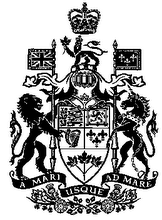


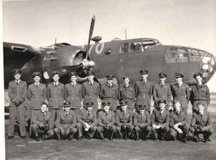

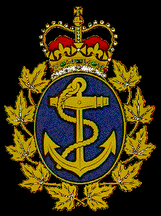




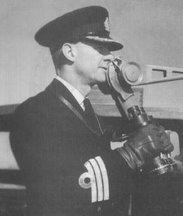
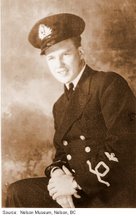


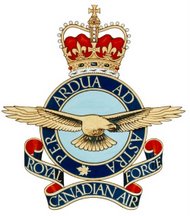
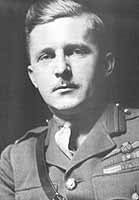
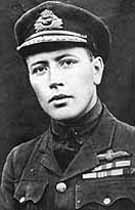
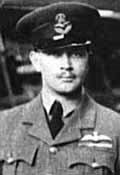












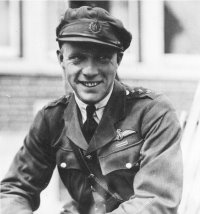


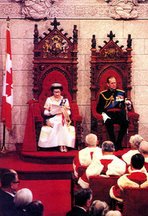
I think the admin of this website is actually working hard in support of his website, because here
ReplyDeleteevery information is quality based material.
Also visit my webpage ; crushing cogs tower boss fight
Malaysia & Singapore & brunei best on-line blogshop for wholesale & supply korean
ReplyDeleteadd-ons, accessories, earstuds, locket, rings, bracelet, hair & bracelet
accessories. Deal 35 % wholesale markdown. Ship Worldwide
My website :: curso unas de gel